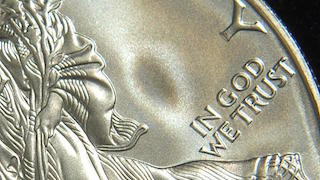Ethics and Economics Forum-April 2016
Thursday, May 5, 2016

Paul Hoyt-O’Connor, author of Bernard Lonergan’s Macroeconomic Dynamics, used Lonergan as a lens to examine the recent economic and political successes of the Basque country’s achievements and lessons to be drawn from that experience. One lesson that Dr. Hoyt-O’Connor emphasized is the importance of social solidarity rather than individualistic notions of the human person for an economy that is directed toward the common good. The prevalence of co-operative enterprises in Spain’s Basque country is a reflection of that commitment to social solidarity and the common good. The Forum concluded with a lively discussion on how the Basque Country’s achievements might be replicated in U.S. cities such as Newark, NJ.
The Ethics and Economics Forum is sponsored by the Department of Religion and the Center for Catholic Studies’ Bernard J. Lonergan Institute and Micah Institute for Business and Economics.
The Forum’s conversations on economic justice aim to take an interdisciplinary approach, bringing together faculty from various schools and departments across the university. The Forum is open to faculty presentation ideas and suggestions.The Ethics and Economics Forum website aims to provide resources for interdisciplinary study of economic justice as well as an online forum to promote discussion beyond the Forum’s regular meetings.
About the Micah Institute for Business and Economics
Seton Hall University’s Micah Institute for Business and Economics
operates under the auspices of the Center for Catholic Studies. Its
mission is to introduce faculty, students, and the business community to
the Catholic perspective on business and economic life. It seeks to
present the multiple ways in which these two interactive and vital
engines impact the lives of all individuals personally, communally, and
professionally.
For more information, visit here»
About the Bernard J. Lonergan Institute
The Bernard J. Lonergan Institute was launched in 2006 by
the Center for Catholic Studies. The mission of the Bernard J. Lonergan
Institute at Seton Hall University is to make known the work of the
Canadian philosopher-theologian Bernard J. Lonergan, S.J., and its
implications for contemporary culture. Besides being a research center
with all the significant holdings of the primary and secondary
literature on Bernard Lonergan, the center will also serve to implement
Lonergan’s vision of Catholic theology integrating all of modern culture
through programs in the natural and human sciences, historical
scholarship, and the professions. It will serve as a locus of cultural
healing, helping to implement Lonergan’s vision of “Cosmopolis,” that
is, a culture liberated from bias.
The Institute sponsors scholarship, programs, lectures and conferences centered around Lonergan’s work. The Institute contains all of Lonergan's published works, copies of his most significant unpublished writings, doctoral dissertations on Lonergan's work, the most significant secondary literature on Lonergan and Lonergan's "memorabilia," including letters and photos on display.
As of 2009, the Institute publishes The Lonergan Review. The publication’s mission is to link explicit self-knowledge—Lonergan’s “self-appropriation”—with the various academic disciplines and professions. By doing this, it seeks to foster authentic human cultures of high ideals, open to religion, the Catholic intellectual tradition, and service of the poor. The journal is published annually.
For more information, visit here»
About the Department of Religion
The Department of Religion is Seton Hall's home for the
study of theology and religion in global, comparative and ecumenical
contexts, offering a comprehensive yet focused Bachelor of Arts program,
as well as undergraduate minors in religion and archeology. The
Department's curriculum focuses on the theological, cultural, and
ethical dimensions of Catholic, Orthodox, and Protestant Christianity
and other global religious traditions, particularly Judaism and Islam.
On the graduate level, the Department of Religion offers a Master of
Arts in Jewish-Christian Studies, the first and only one of its kind in
the United States. The Jewish-Christian Studies program focuses on
analyzing complex religious, ethical and social issues that promote
peace and justice and prepares students for many facets of
interreligious and multicultural relations, dialogue and diplomatic
encounters.
For more information, visit here»






